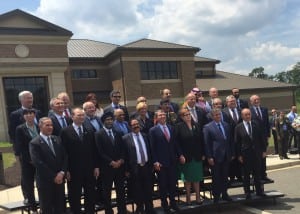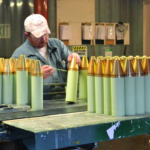
JOINT BASE ANDREWS, Md. – Every member of the 60-nation coalition fighting Islamic State (ISIL) militants in Iraq and Syria is being asked to up its contribution and many have agreed ahead of a plan to oust the group from its regional capitals.Secretary of Defense Ash Carter and more than 30 other defense ministers agreed on Wednesday to further accelerate their coalition fight against ISIL during a ministerial meeting at Joint Base Andrews outside Washington, D.C.Carter declined to discuss publicly…

 By
By 










